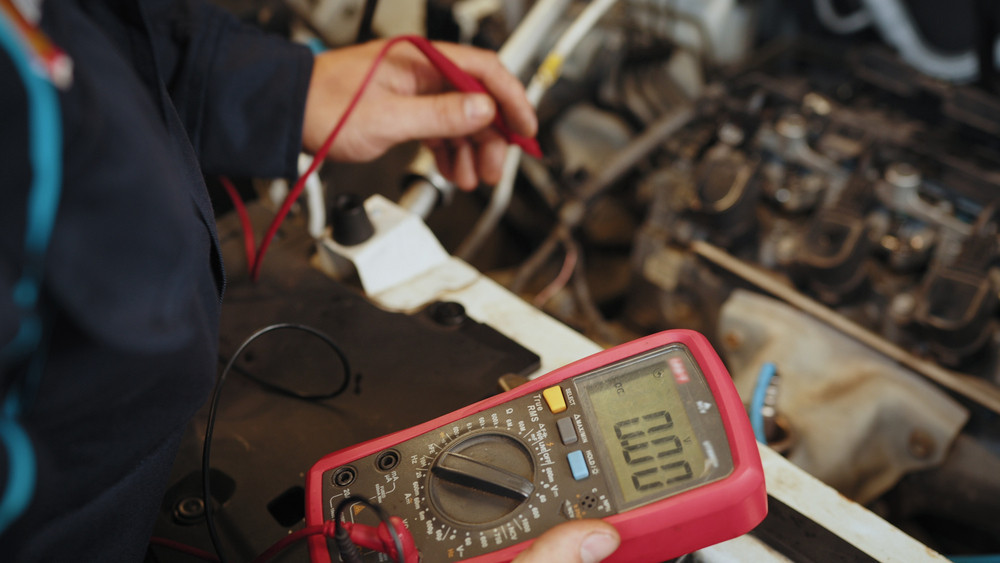Professional vs. DIY Battery Testing in Jefferson, LA: Why Expert Diagnostics Can Save You Time and Money
Jefferson, United States - July 25, 2025 / Jefferson Battery Co Inc /
DIY battery testing is convenient but limited to basic voltage checks.
Professional testing provides accurate, in-depth diagnostics using advanced tools.
A healthy car battery typically measures between 12.4 and 12.7 volts with the engine off.
Regular battery testing helps prevent unexpected breakdowns.
Extreme temperatures can shorten battery life—test before winter or summer.
Clean terminals and regular driving help extend battery lifespan.
For deeper issues, visit a battery store that can test batteries professionally.
Car battery issues are among the most common reasons vehicles fail to start. Whether you're a casual driver or an automotive enthusiast, keeping tabs on your battery’s health is essential. Thanks to the accessibility of DIY tools and services from a battery store that can test batteries, drivers have more options than ever before when it comes to checking and maintaining their vehicle’s power source.
But are at-home battery checks enough, or is professional testing the smarter route? This article breaks down the core differences between DIY battery testing and professional diagnostics. It also offers expert advice on how to extend your car battery’s lifespan and explains how choosing the right service providers can indirectly support your battery health and overall vehicle maintenance.
Understanding the Basics of Car Battery Performance
Before comparing battery testing methods, it’s important to understand what your car battery actually does. It isn’t just there to start your engine—it powers essential electronics, powers safety systems, and works alongside the alternator to keep your vehicle’s electrical system running smoothly.
Common Signs Your Battery Needs Attention:
The engine cranks slowly when starting.
Headlights or interior lights appear dimmer than usual.
The dashboard battery warning light turns on.
Clicking sounds when turning the key, but the engine doesn’t start.
The battery is more than 3 years old and has never been tested.
When these signs appear, it's crucial to determine whether your battery simply needs a charge, needs cleaning, or is close to failure. This is where battery testing—either DIY or through a trusted battery store that tests batteries—becomes essential.
DIY Battery Testing: What Can You Realistically Do at Home?
Testing a car battery at home is a convenient and low-cost way to monitor its condition. While it won't offer a complete diagnostic picture, it can help you catch early signs of weakness.
Common DIY Tools:
Multimeter – Measures voltage across the battery terminals.
Hydrometer – Checks the specific gravity of electrolyte (used in older, unsealed batteries).
Visual Inspection – Looks for physical signs like corrosion, bulging, or leakage.
How to Use a Multimeter for Battery Testing:
Start by adjusting the multimeter to measure DC voltage—typically indicated by a “V” symbol with a solid line over a dashed line.
Next, connect the red lead to the battery’s positive terminal and the black lead to the negative terminal.
Make sure the engine is off during testing. A well-functioning battery will generally display a reading between 12.4 and 12.7 volts.
If the reading drops below 12.2 volts, the battery may be partially discharged. A voltage near or under 12.0 volts could suggest the battery is nearing failure and should be tested further or replaced.
Limitations of DIY Testing:
Multimeters can only measure static voltage, not the battery’s ability to hold a charge under load.
You cannot assess internal resistance or actual Cold Cranking Amps (CCA) at home.
Misinterpreting the readings can lead to either premature battery replacement or ignored problems.
In short, while DIY testing offers basic insights, it’s not foolproof. You may still need the insights provided by a battery store that can test batteries using specialized tools.
Professional Battery Testing: Tools That Deliver a Complete Picture
If you’re experiencing erratic vehicle behavior or preparing for a long trip, it's wise to visit a local battery shop that offers professional testing. These businesses typically use advanced diagnostics equipment that goes far beyond a multimeter.
Professional Tools and What They Do:
Digital Conductance Testers – Assess the battery’s internal health by sending a small AC signal through the cells.
Load Testers – Simulate a start-up load to see how the battery performs under stress.
Battery Analyzers – Measure state of charge, reserve capacity, and even identify bad cells.
Cold Cranking Amps (CCA) Measurement – Verifies the battery’s power to start the vehicle in cold weather.
Advantages of Visiting a Battery Store That Tests Batteries:
Accurate Assessment – Uncovers hidden problems not detectable with DIY tools.
Preventative Care – Detects issues early before they lead to breakdowns.
On-the-Spot Replacement – Many stores can install a new battery if yours is found defective.
No Guesswork – You’ll know if your battery needs charging, cleaning, or replacing.
Time-Saving – Most professional tests take less than 15 minutes and may even be free of charge.
These services are particularly helpful before extreme weather seasons or long road trips. A reliable battery test from a shop that offers full diagnostics could prevent you from being stranded unexpectedly.
When Should You Test Your Battery?
Whether using a multimeter at home or visiting a battery store that offers testing services, timing is critical. Preventive maintenance is always better than emergency repairs.
Ideal Times to Test Your Battery:
Before winter or summer, when temperature extremes can impact performance.
Before any long-distance travel.
After jump-starting your vehicle.
When electrical accessories (e.g., radio, lights) are behaving erratically.
Annually, if your battery is more than 3 years old.
Routine testing—especially when combined with professional diagnostics—extends battery life and saves on unnecessary replacements.
How to Extend the Life of Your Car Battery (And When to Replace It)
Battery testing is only one part of keeping your power system in good shape. You can also extend its service life through smart care habits.
Battery Care Best Practices:
Keep Terminals Clean: Corrosion buildup reduces conductivity. Use a wire brush and battery cleaner regularly.
Drive Regularly: Short trips don't allow the battery to fully recharge. Drive for 20+ minutes weekly.
Secure the Battery: A loose battery can vibrate, causing internal damage.
Avoid Leaving Electronics On: Always check that interior lights and infotainment systems are turned off when the engine is off.
Store Properly: If you're not driving your car often, use a battery maintainer to prevent deep discharge.
Watch the Temperature: Extreme heat and cold shorten battery life. Park in shaded or enclosed areas when possible.
When to Replace Your Battery:
Voltage consistently drops below 12.0V after charging.
Case shows cracks, bulges, or leakage.
Starts requiring frequent jump-starts.
Battery age exceeds 4–5 years, especially without prior testing.
Load testing shows low performance under cranking conditions.
Professional testing can give you a heads-up before complete failure, allowing you to plan a battery replacement rather than rushing during a roadside emergency.
Comparing DIY vs. Professional Testing: The Final Verdict
To help you decide which method is best for your situation, here’s a side-by-side comparison:
Factor | DIY Testing | Professional Testing |
Cost | Low (Multimeter: $20–$50) | Often free at local battery stores |
Convenience | Anytime, anywhere | May require scheduling or a shop visit |
Accuracy | Basic voltage reading only | Full load and internal resistance analysis |
Diagnostic Value | Limited insight | Predictive and comprehensive |
Recommended For | Routine checks | Seasonal testing, troubleshooting, and trip preparation |
Summary:
Use DIY testing as a quick check to monitor battery voltage at home.
Visit a battery store that can test batteries for detailed diagnostics, especially when you suspect deeper issues or before major weather changes.
Combine both approaches to get the best of both worlds: convenience and accuracy.
Conclusion: Take Charge of Your Vehicle’s Battery Health
Car batteries are often neglected until they fail, but they don’t have to be. By using a combination of DIY tools and professional services from a reliable battery store that tests batteries, you can keep your vehicle running smoothly year-round.
Don’t forget that maintaining your garage or auto shop environment also plays a role. Hiring the right commercial cleaning company helps you prevent battery corrosion, spot issues early, and work more efficiently.
Battery problems are preventable with the right tools, habits, and professional help. Make smart decisions now, and avoid the stress and expense of roadside emergencies later. Whether you're testing at home or scheduling a visit to a battery shop that offers diagnostics, taking proactive steps today ensures peace of mind tomorrow.

Contact Information:
Jefferson Battery Co Inc
700 Jefferson Hwy
Jefferson, LA 70121
United States
Jefferson Battery
https://www.jeffersonbattery1.com/


